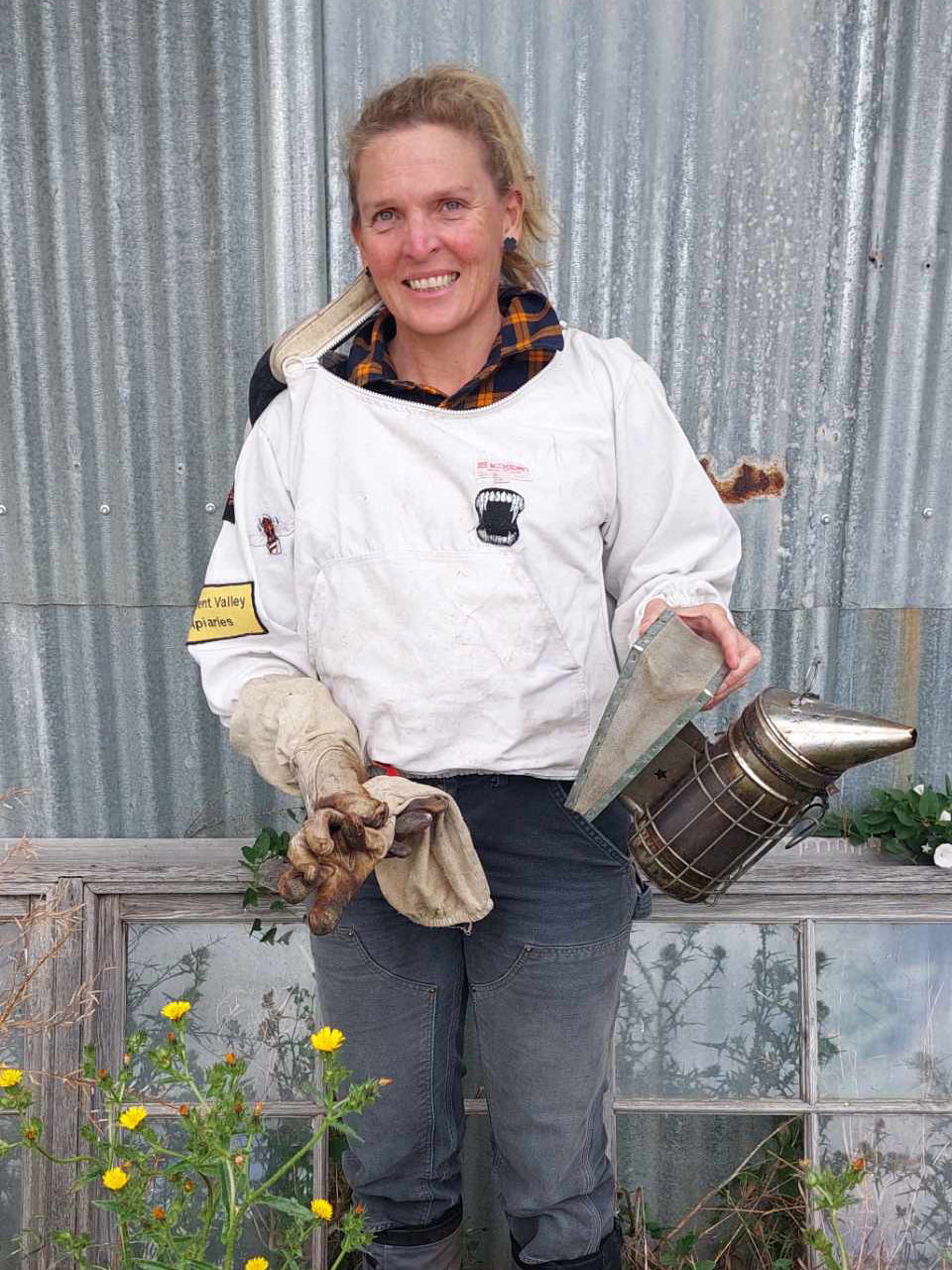Jenni McLeod always wanted to be a beekeeper. ‘I started back in pre-Internet days when there were no structured courses,’ she said, ‘and found a mentor, Maurice Lawrence, who took me out to the leatherwood for three years running.’
Climate Champion creating a buzz

In Tasmania, the leatherwood tree (Eucryphia lucida) is the only truly reliable source of nectar flow. ‘Every summer when it comes into flower, that’s when we migrate the hives out into the rainforest.’
Like many beekeepers, Jenni provides pollination services to farmers. ‘I work with an apple orchard and a blueberry farm. Others make it their whole livelihood. It’s a reliable source of income, whereas honey isn’t.’
But pollinating crops such as peas, carrots, apples and particularly cherries is notoriously hard on bees, and taking the hives out to the leatherwood at the end of the season allows them to range freely, eat, and recover.
In recent years, climate change has made life harder for beekeepers. Higher temperatures, strong winds, flooding and droughts all take their toll. ‘The recent dry lightning strikes in north-west Tasmania not only burnt beehives, but destroyed rainforest, which is now lost to a generation, because leatherwood doesn’t produce nectar until it’s twenty or thirty years old.’
‘The other problem is forestry operations. Clear felling creates good conditions for Eucalyptus regnans, but not for leatherwood. And, as forestry roads are decommissioned in south west Tasmania, beekeepers are struggling to get to the remaining sites.’
Jenni’s change.org petition to save pristine leatherwood forest that is under threat from logging has attracted nearly 32,000 signatures. ‘I use it as an advocacy and educational tool. If we want our food crops pollinated, we have to give beekeepers access to the leatherwood.’
Jenni started the Bee Collective because she believes that collaboration is the answer to the many problems the world is facing. She has worked with children, businesses around Tasmania, other beekeepers, artists and community centres. She is also the author (with Illustrator Kristin Hynes) of The Little Book of Beekeeping, an accessible guide for people who want to get into the industry.
She emphasises that you don’t have to be a beekeeper to be bee friendly. She recommends that gardeners: 1) stop spraying chemicals, 2) plant bee forage such as lavender, borage, prickly box, pincushion hakeas, wattle, chives and rosemary, and 3) leave a bit of mess in the garden.
‘Immaculate lawns are pollinator graveyards. Native bees and beetles like holes in bits of wood for laying eggs. Put leaves and clippings back onto your garden as mulch. Even in a courtyard garden, you can have plants in pots with mulch around them, to encourage diversity.’
Jenni McLeod has been chosen by Clarence Climate Action as this month’s Climate Champion.
Eastern Shore Sun, June 2025, page 11